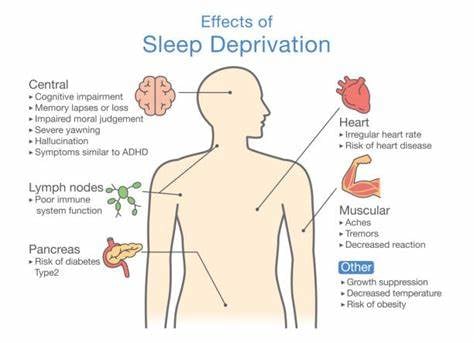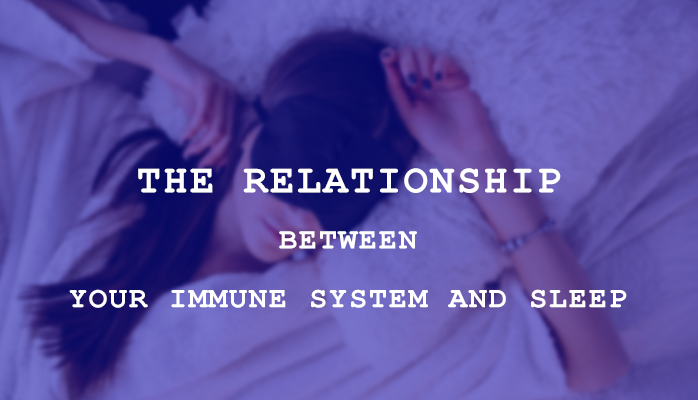The Relationship Between Your Immune System and Sleep
The immune system and sleep are intimately connected. Sleep loss impacts immune response and, in turn, immune system failures impact sleep. If one is trying to avoid getting sick, consistent quantiful and quality sleep is one of the best ways to prevent illness and ensure optimal recovery.
Molecules called cytokines are signaling molecules in the immune system and the brain. Sleep deprivation decreases the body’s production of cytokines and inhibits immune response to illnesses, such as:
- Flu
- Colds
- Chronic illness
Specifically, a lack of sleep prevents the immune system from building up its forces, meaning that it will be overloaded by illness and likely take longer to recover.
During illness, increased levels of pro-inflammatory cytokines correspond with increased fatigue, which is why fatigue is a symptom of illness – it’s the body’s way shutting down to sleep for a quicker recovery.
How Much Sleep Should You Get
Getting enough sleep is extremely important for preventing illness. The right amount of sleep varies by age. Below are minimum, maximum, and recommended amount of sleep based on age [Sleep Foundation]:
- Age 0-4 months
- 11-19 hours; recommended 14-17 hours per day
- Age 4-12 months
- 10-18 hours; recommended 12-15 hours
- Age 1-3 years
- 9-16 hours; recommended 11-14 hours
- Age 3-5 years
- 8-14 hours; recommended 10-12 hours
- Age 6-13 years
- 7-12 hours; recommended 9-11 hours
- Age 13-18 years
- 7-11 hours; recommended 8-10 hours
- Age 18+
- 6-10 hours; recommended 7-9 hours
These guidelines are just that - recommendations for how much sleep to get. It's ideal to at least meet the minimum for robust immune response, however.
Common Causes of Sleep Deprivation
Sleep disorders are a common cause of chronic sleep deprivation, including:
- Sleep apnea
- Insomnia
- Restless leg syndrome
- Circadian rhythm disorders
- Parasomnias
The primary symptom of sleep disorder is sleep deprivation. Beyond this, each sleep disorder has its own set of unique symptoms. Sleep disorders are not only bad for health in general, but the resulting sleep deprivation also makes one much more likely to get sick and take longer to recover from sickness.

Sleep disorders are especially insidious when dealing with chronic or long term illness that already leaves the body with a weak or compromised immune system, and it is imperative in such cases that those individuals get a lot of sleep to maintain energy and quality of life.
The Real Way to Make Up Sleep
It's not uncommon to go through periods of time with inadequate sleep – stress, children, age-related sleep changes, and travel are all prime examples. It’s important in these circumstances to make up sleep, i.e. repaying a sleep debt.
There is a very problematic misconception about the sleep debt; that it works like a monetary debt that can be paid off in lump sums. An example of this isn getting 5-6 hours each night during the week and then sleeping 10-12 hours on the weekend to try and make up for it.
Unfortunately, repaying a sleep debt doesn’t work like this. Sleep studies show that getting one or two long nights of sleep do not remove the effects of sleep deprivation.
Sleep debt is repaid by establishing a healthy pattern of sleep for several days. If you are getting less sleep at night, you can supplement your sleep by taking naps.
If you live in Alaska and are dealing with chronic sleep deprivation or chronic sickness that may be sleep-related, please take with free online sleep test to talk with one of our sleep health experts.


